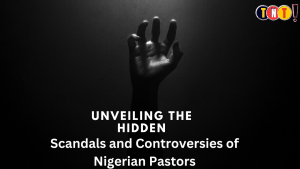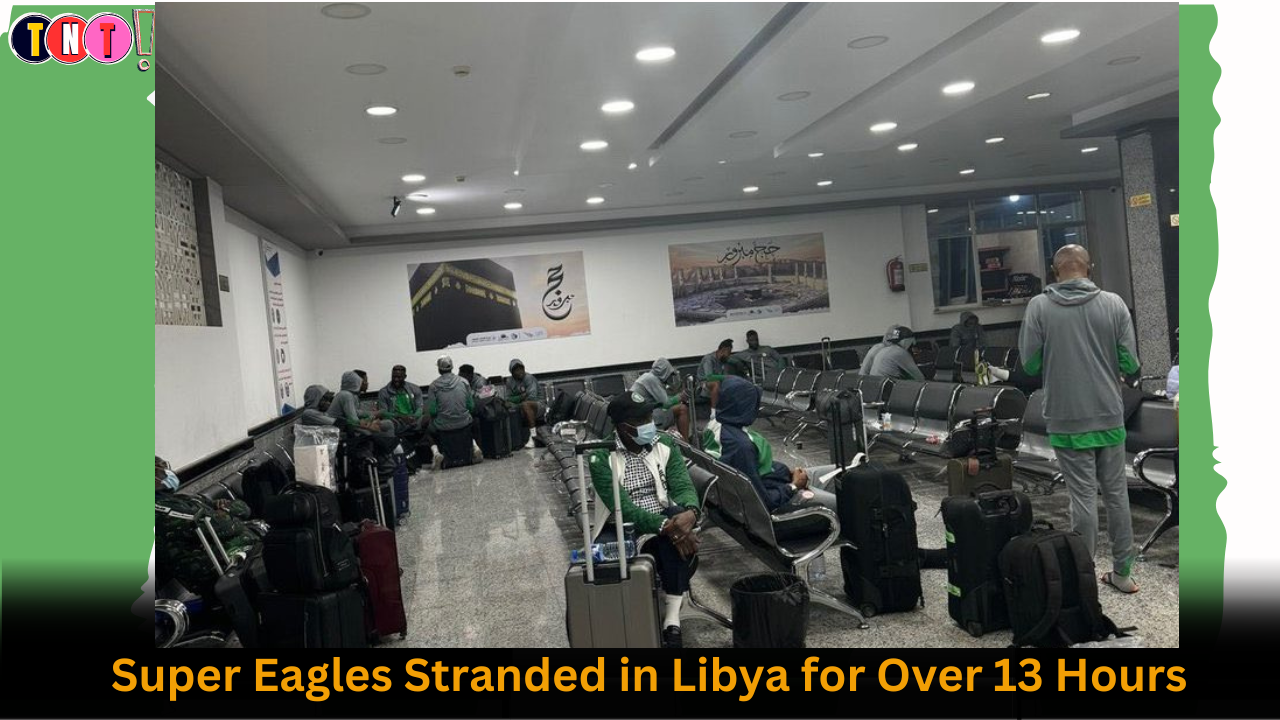Nigerian pastors, revered as spiritual leaders and moral guides, often face scrutiny beyond their public personas. While many are dedicated to their ministries, a number have been embroiled in scandals and controversies that challenge their integrity. This article explores the hidden lives of Nigerian pastors, delving into financial mismanagement, sexual misconduct, and more.

The Power and Influence of Nigerian Pastors
In Nigeria, pastors wield significant power and influence, both spiritually and politically. Prominent figures like Pastor Chris Oyakhilome of Christ Embassy and Bishop David Oyedepo of Winners Chapel lead mega-churches with substantial followings and immense wealth. Their opulent lifestyles often prompt questions about the true source of their wealth, especially in a country with high poverty rates.
The growth of the Pentecostal movement in Nigeria has given rise to high-profile pastors whose followers believe in their divinely inspired authority. From opulent lifestyles to political connections, the clout Nigerian pastors command is staggering. Their word is often treated as law, and questioning their actions can be seen as heresy. This environment of reverence, however, has also made it easier for some pastors to engage in controversial activities, shielded by the unquestioning loyalty of their followers.
Financial Scandals: Tithes, Private Jets, and Wealth Accumulation
Many Nigerian pastors preach the prosperity gospel, promising financial blessings to congregants who give generously to the church. Unfortunately, some pastors have taken advantage of this doctrine, using church funds for personal enrichment.
One of the most notable examples is Pastor Ayo Oritsejafor, former President of the Christian Association of Nigeria (CAN), who was embroiled in a scandal when his private jet was seized by South African authorities in 2014 for carrying $9.3 million in cash, allegedly for the purchase of arms. While the money was explained away as part of a legitimate government deal, the incident raised concerns about the blurred lines between church leadership and financial misdeeds.
Similarly, the lavish lifestyle of Apostle Johnson Suleman of Omega Fire Ministries has been a topic of conversation. Apostle Suleman owns multiple properties, a private jet, and is often seen flaunting his wealth. While he claims this prosperity is a blessing from God, critics argue that such affluence contrasts sharply with the poverty in his congregation and Nigeria at large.
Sexual Scandals: Abuse of Power and Trust
One of the most troubling trends among Nigerian pastors is the rising number of sexual misconduct allegations. Some religious leaders have been accused of taking advantage of their authority to exploit women within their congregations. The most shocking cases involve pastors using their position of trust to coerce or manipulate vulnerable members into inappropriate relationships.
A recent and widely publicized scandal involved Pastor Biodun Fatoyinbo of Commonwealth of Zion Assembly (COZA). In 2019, Busola Dakolo, a well-known Nigerian photographer and the wife of singer Timi Dakolo, accused Fatoyinbo of raping her when she was a teenager. The allegations shook the Nigerian church community, sparking the #ChurchToo movement, which demanded accountability for sexual abuse within religious institutions. Although the case was eventually dismissed in court, it reignited conversations about the power dynamics between pastors and congregants.
Another prominent case involves Apostle Suleman, who was accused by multiple women of having extramarital affairs. In 2017, Stephanie Otobo, a Canadian-based singer, accused Suleman of impregnating her and later trying to cover it up. Although the pastor denied the accusations and claimed they were politically motivated, the scandal tainted his reputation, and many questioned the lack of accountability in religious leadership.
Financial Exploitation: Manipulation Under the Guise of Faith
The financial exploitation of church members by pastors is another growing concern. Many pastors manipulate their congregants into giving exorbitant amounts of money in the name of receiving blessings, healing, or divine favor. Some pastors even encourage their followers to empty their bank accounts or sell properties to sow “seeds” into the church, with promises of miraculous returns that never materialize.
Pastor Matthew Ashimolowo of Kingsway International Christian Centre (KICC) was investigated by the UK Charity Commission in 2005 for misappropriating church funds. The inquiry revealed that Ashimolowo had spent over £120,000 on his birthday, including gifts like a Mercedes Benz. The pastor’s use of church funds for personal luxury raised serious ethical questions about the transparency of church finances and the accountability of religious leaders.
False Miracles and Deception: Staged Healings and Fabricated Wonders
The Nigerian church landscape has also been plagued by reports of staged miracles and deception. Some pastors, desperate to draw crowds and increase their congregation’s size, have been caught orchestrating fake healings and miracles to impress followers. These fraudulent acts undermine the trust of believers and bring into question the authenticity of some pastors’ ministries.
In 2022, a video circulated on social media showing a supposed miracle involving Pastor Jeremiah Fufeyin of Christ Mercyland Deliverance Ministry. In the clip, a man allegedly brought back to life after being dead for several hours was later identified as an actor hired by the church. This incident sparked widespread criticism of pastors who stage miracles for fame and financial gain, exposing the lengths some religious leaders will go to in order to maintain their influence.
Occult Practices and Dark Secrets: Allegations and Speculations
While some pastors are open about their faith in Christ, there are persistent rumors and accusations of certain religious leaders secretly engaging in occult practices to maintain power, influence, and wealth. These claims, though difficult to substantiate, continue to surface, with some former church members and insiders sharing stories of dark rituals and sacrifices taking place behind the scenes.
A 2023 documentary aired on Nigerian television explored the alleged links between certain Pentecostal pastors and secret occultic societies. Although names were not explicitly mentioned, the documentary interviewed ex-church members who claimed to have witnessed bizarre rituals aimed at increasing church attendance and ensuring continuous financial support from congregants. These allegations, while largely speculative, have fueled conspiracy theories about the dark side of some religious ministries.
Redemption or Decline: The Resilience of Nigerian Pastors
Despite numerous scandals, some pastors manage to maintain their influence through damage control and public apologies. Pastor Chris Oyakhilome, for example, faced divorce and allegations of adultery in 2014, a situation that shocked many of his followers. Despite the personal nature of the scandal, Oyakhilome’s ministry remains strong, and his church, Christ Embassy, continues to thrive. His ability to weather the storm illustrates how resilient some pastors are in the face of controversy.
A Call for Transparency and Accountability
The scandals surrounding Nigerian pastors reveal the need for greater transparency and accountability in religious leadership. As social media and investigative journalism continue to shed light on these issues, it is essential for followers to balance faith with reason and hold leaders accountable. Restoring trust in religious institutions requires honest leadership and ethical practices.



